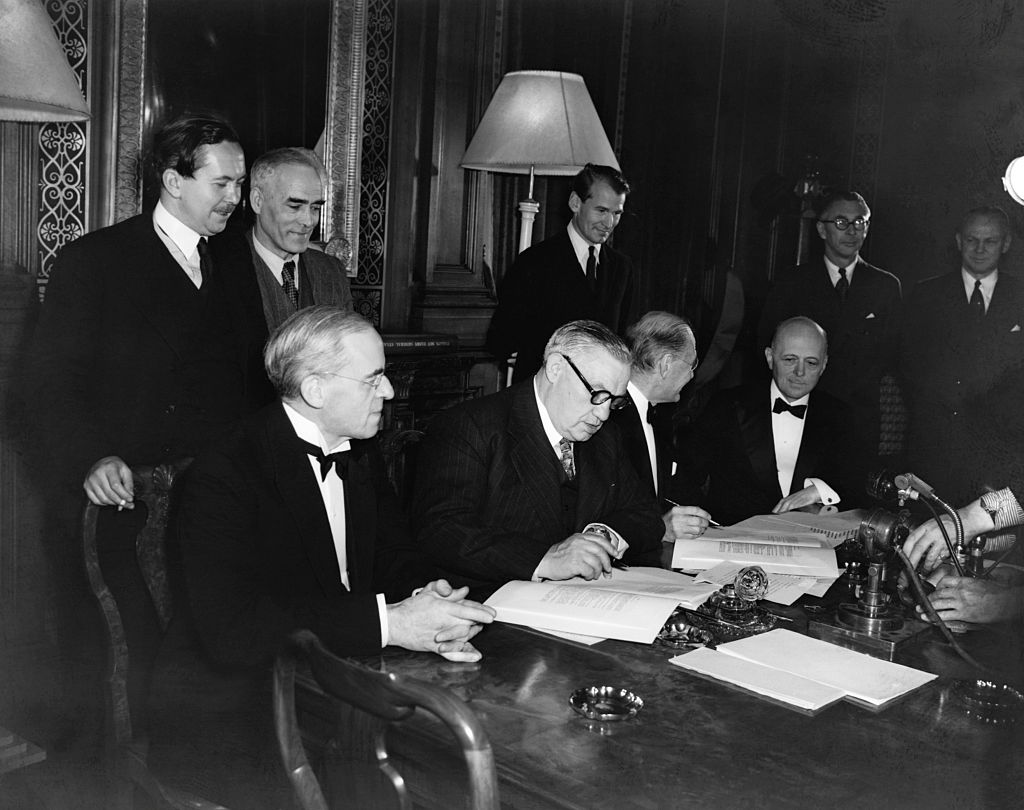3 April 1948: Marshall Plan signed into law
On this day in 1948, Secretary of State George Marshall’s European Recovery Program, otherwise known as the Marshall Plan, is adopted.


Get the latest financial news, insights and expert analysis from our award-winning MoneyWeek team, to help you understand what really matters when it comes to your finances.
You are now subscribed
Your newsletter sign-up was successful
Want to add more newsletters?
In the late 1940s, western Europe faced the daunting task of reconstruction after the devastation of World War II. It was also concerned about the threat of communism: the Soviet Union had established control of central and eastern Europe, while domestic communist parties seemed on the verge of electoral success.
The only two powers capable of keeping Europe out of the Soviet orbit were Britain and the United States. Britain had contributed large numbers of troops to the continent, but was barely solvent, so the primary economic responsibility for saving Europe would fall on America.
Despite rising isolationist sentiment in the US, President Harry Truman committed his country to continued involvement in Europe in a speech in March 1947, known as the "Truman doctrine". Two months later, George Marshall, his secretary of state, pledged economic support to western Europe. While aid was offered to central and eastern Europe as well, it was conditional on economic reform and was quickly rejected by the Soviet-backed rulers.
Try 6 free issues of MoneyWeek today
Get unparalleled financial insight, analysis and expert opinion you can profit from.

Sign up to Money Morning
Don't miss the latest investment and personal finances news, market analysis, plus money-saving tips with our free twice-daily newsletter
Don't miss the latest investment and personal finances news, market analysis, plus money-saving tips with our free twice-daily newsletter
Marshall's proposals, formally known as the European Recovery Program, were approved by Congress in March 1948, and signed into law on 3 April. Over the next three years the US gave $12.7bn ($258bn in today's money), mostly in the form of grants.
The biggest beneficiaries were Britain, France, West Germany, Italy and Holland. Money was spent on everything from infrastructure to food. As well as providing vital support while the countries rebuilt, it has been credited with maintaining Western unity during this period.
Get the latest financial news, insights and expert analysis from our award-winning MoneyWeek team, to help you understand what really matters when it comes to your finances.

-
 The rare books which are selling for thousands
The rare books which are selling for thousandsRare books have been given a boost by the film Wuthering Heights. So how much are they really selling for?
-
 Pensions vs savings accounts: which is better for building wealth?
Pensions vs savings accounts: which is better for building wealth?Savings accounts with inflation-beating interest rates are a safe place to grow your money, but could you get bigger gains by putting your cash into a pension?